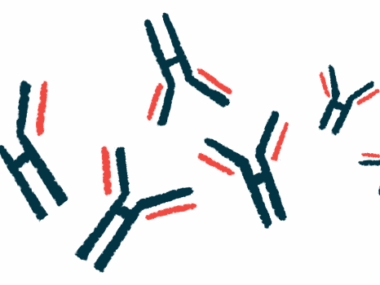Lenabasum Fails to Show Efficacy in Diffuse Cutaneous SSc, Phase 3 Trial Shows
Written by |

Treatment with lenabasum failed to outperform a placebo when given as an add-on to standard immunosuppressants in adults with diffuse cutaneous scleroderma (dcSSc), top-line data from a Phase 3 trial show.
Participants given a placebo on top of immunosuppressants experienced an unprecedented improvement, Corbus Pharmaceuticals said in a press release.
“We are surprised and deeply disappointed that the RESOLVE-1 trial did not meet its primary endpoint [goal]. I would like to extend my gratitude to the participants in the study and the clinical staff at the study sites, as well as to the Corbus employees, for their hard work and dedication,” said Yuval Cohen, PhD, CEO of Corbus.
The RESOLVE-1 trial (NCT03398837) enrolled 365 adults with dcSSc at more than 70 clinical centers across North America, Europe, Israel, Japan, South Korea, and Australia.
Participants were assigned randomly to receive 5 or 20 mg of lenabasum or a placebo twice a day for 52 weeks. Most (84%) received immunosuppressants as background therapy, which is a standard clinical practice, Corbus said.
The trial’s primary efficacy goal was the change in the American College of Rheumatology Combined Response Index in dcSSc (ACR CRISS) score after one year of treatment.
This score — range from zero to one, with a higher score indicating clinical improvement — is a composite measure that takes into consideration different aspects of the patient’s response to treatment in scleroderma.
Secondary goals assessed lenabasum’s effectiveness according to changes in the modified Rodnan Skin score (mRSS). Additional goals included the Health Assessment Questionnaire — Disability Index (HAQ-DI) and forced vital capacity percent predicted, a measure of lung function.
Results showed a similar ACR CRISS score comparing 20 mg of lenabasum and the placebo after one year.
“I am genuinely surprised by these results,” said Robert Spiera, MD, co-lead investigator on RESOLVE-1 and director of the Scleroderma, Vasculitis, and Myositis Program at the Hospital for Special Surgery, Weill Cornell Medicine.
“Immunosuppressive drugs, alone or in combination, are increasingly becoming a mainstay of treatment for patients with early diffuse cutaneous SSc. However, the impact of these drugs on disease has not previously been studied systematically and clearly was underappreciated by the community of SSc experts. The high degree of efficacy of background drug therapy in the control arm is well beyond what was expected,” Spiera said.
Lenabasum was generally safe and well-tolerated, with no new safety signals reported. Treatment-related adverse events occurred in 86.2% of patients in the placebo group and 91.7% of those in the 20 mg lenabasum group. Serious adverse events were found in 14.6% participants on placebo and 9.2% patients given 20 mg of lenabasum. Severe events occurred in 13% of the placebo group and 5.8% of 20 mg lenabasum-treated patients. No patient treated with lenabasum withdrew from the study due to side effects.
Corbus now will conduct further analyses to find certain groups of patients who may have responded to lenabasum, said Barbara White, MD, the company’s chief medical officer and head of research.
The company expects to meet with the U.S. Food and Drug Administration (FDA) to discuss potential next steps for the clinical development of lenabasum.
“Whilst the immediate study results are disappointing, RESOLVE-1 provides a rich dataset to understand for the first time how to better target treatments for SSc based upon clinical parameters and concomitant treatment,” said Christopher Denton, PhD, co-lead Investigator of the trial and a professor at UCL Medical School in London.
“We are already querying the data to understand the natural history of early diffuse cutaneous SSc and the potential benefits of lenabasum in these subjects,” he said.
Corbus also is testing lenabasum in a Phase 2 trial (NCT03451045) in people with cystic fibrosis, a Phase 3 study (NCT03813160) in patients with dermatomyositis, and a Phase 2 trial (NCT03093402) in systemic lupus erythematosus.
Lenabasum has been granted orphan drug and fast track designations by the FDA, and orphan drug designation by the European Medicines Agency for the treatment of scleroderma.





